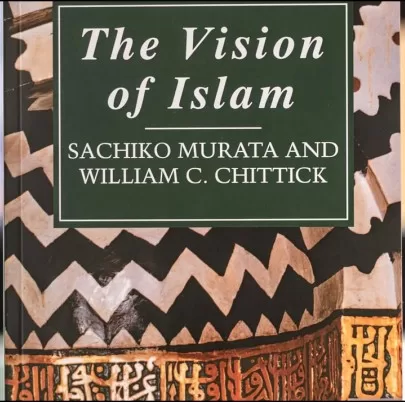The Measuring Out
The Prophet said that faith includes faith in “the measuring out, the good of it and the evil of it.” The term measuring out (qadar) is frequently translated as “predestination,” and in some contexts, this is a good translation, but this will not help us much to understand the broad significance of the word in the Koran and the Hadith.[1] In this section we will emphasize the wide meaning of the term by following up its implications into domains that are rarely discussed in treatments of the Muslim idea of predestination. To be fair to the concept, one needs to understand how its logic fits into tawhid.
Creative Power
The word qadar comes from the same root as qadir, which is a divine name that we have been translating as “Powerful.” The noun qudra which designates the divine attribute of power is close to qadar both in derivation and in meaning. To have power is to have the ability or capacity to do or make something, to perform an act, to achieve a goal. God, the Koran tells us repeatedly, “is powerful over all things,” so his power—in contrast to ours—is unlimited.
Qadar is sometimes used synonymously with qudra, so it also means “power” and “ability.” But the word qadar puts stress on the basic meaning of the root, which is to measure or determine the size or quantity of something. This may be done physically, with a scale or a tape measure, or it may be done mentally, through computation and reckoning. The term may mean not only “to take something’s measure,” but also “to determine its measure.” To measure something in this sense is to control it and govern it, to have power over it. Hence we come back to power.
God is powerful over all things, while human beings have a certain limited power inasmuch as they reflect God’s power. Obviously they have no power over God, any more than a ray of light has power over the sun. Nor are they able to understand God in a true sense without God’s guidance, for understanding something gives us a certain power over it.
They comprehend nothing of His knowledge, save such as He wills. (2:256)
They measured not God with His true measure. (6:91, 22:74, 39:67)
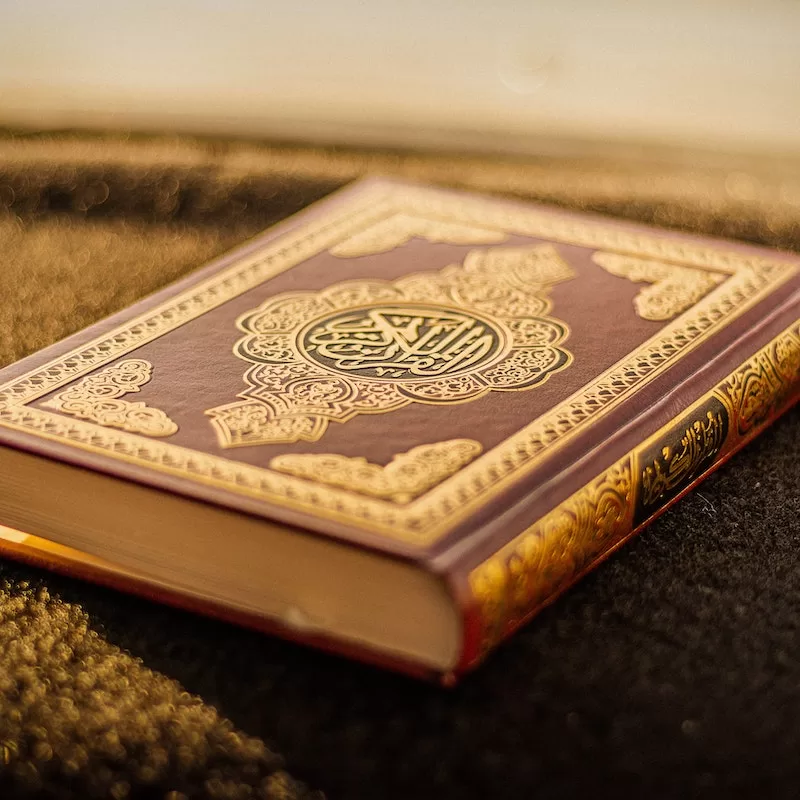
The Koran uses the term qadar in ten verses, and these provide part of the basis for the later formulation of a doctrine that can fairly be called that of predestination. But the theological understanding of qadar has had much less importance in determining the way Muslims in general have understood qadar than the Koranic verses. We will look at a few of these verses, since they provide a convenient introduction to basic Islamic ideas about the relationship between God and the cosmos and God and human beings:
Surely We have created everything with a measuring out. (54:49) There is nothing whose treasuries are not with Us, and We send it down only with a known measuring out. (15:21)
These two verses illustrate the basic Koranic themes that God is Knowing, Powerful, and Creator. He is the source of all things, so all things are found with him. Whether they are with him in the Unseen or with us in the Visible, he knows them:
With Him are the keys to the Unseen; none knows them but He. He knows what is in land and sea; not a leaf falls but He knows it. Not a grain in the earth’s shadows, not a thing, fresh or withered, but it is in an explicit Book. (6:59)
When God creates something, he brings it into existence. At the same time, he keeps with himself the treasuries from which he provides for the thing’s existence. These treasuries represent the good and the real, which belong only to God. “There is nothing real but the Real.” In more detail, the treasuries represent the divine attributes, which are the sources for all good and real qualities in the world.
Hence a thing’s life is supplied from God’s treasury of life, a thing’s power from his treasury of power, a thing’s compassion from his treasury of compassion. Who decides what it is that things receive from the treasuries? The owner of the treasuries. What is his decision called? Measuring out. He measures out knowledge, power, mercy, good, and so on. No created thing is able to control its share of these qualities.
Everything participates in the real qualities of existence only to the extent that Reality allows it to participate; God is on the giving end, and created things are on the receiving end. Tanzih[2] demands that God alone have reality, but tashbih[3] demands that he give of his reality to creation—in the manner that he chooses. The measuring out is his, not ours.
Had God expanded His provision to His servants, they would have been insolent in the earth. But He sends down whatsoever He will with a measuring out. Surely He is aware of and sees His servants. (42:27).
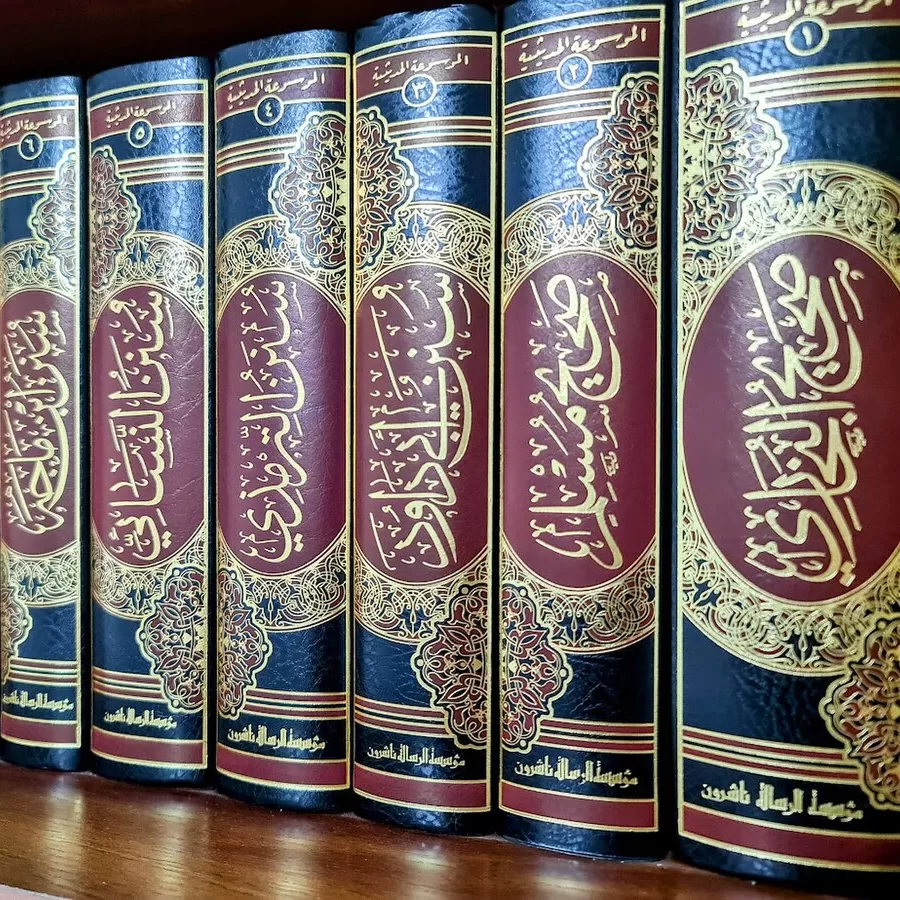
Like many important Koranic terms, servant has several levels of meaning. In the broadest sense, its meaning is equivalent to “creature.” Anything at all is a servant of God, since God created it to do his work, and it does his work, whether it knows it or not, and whether it wants to or not. Just as everything in the heavens and the earth is a muslim because it is submitted to God, so also everything is His servant. “None is there in the heavens and earth but he comes to the Merciful as a servant” (19:93).
In a narrower sense, a servant is someone who consciously serves God by following a prophet. In a still narrower sense, a servant is a human being who serves God perfectly and with full awareness and total freedom of choice. It is in this last sense that servant is considered the most exalted title of the prophet Muhammad.
The just-cited verse (42:27) is saying that God measures out carefully what he gives to his creatures. Otherwise, they would overstep their bounds and work corruption in the created order. In a wide sense, the verse means that the limitations imposed upon creatures by their created attributes give them their identity.
“He gave everything its creation” (50:20). If the moon had too much light, nighttime would be a rare thing. If cats had too much strength, we could not domesticate them and there would be no one to take care of the mice. God’s wisdom is always in the background, determining what is good for all creatures.
As the Persian proverb puts it, “God knew the donkey when he did not give it horns.”
In the human context, this Koranic verse means that poverty, need, and suffering are necessary for the maintenance of social order. If everyone were rich, who would bake the bread? For that matter, who would plant the crops? Differentiation among people is utterly necessary for the welfare of society.
Moreover, if God had made everyone rich and independent, this would have turned them away from the most basic of human tasks, which is to establish tawhid. If God were to give people everything their lower natures wanted, why would they turn to God for their needs? They would consider this world a paradise and forget about tawhid. They would rise up in revolt against God, since they would follow other gods, mainly their own caprice.
In short, one of the implications of the verses on measuring out is that God has his own purposes for giving people what he gives them. There is wisdom and mercy behind his activities, even if we fail to see the wisdom and even if we suffer because we feel that our share has been stinted:
It may happen that you will hate a thing which is good for you, and it may happen that you will love a thing which is evil for you. God knows, and you know not. (2:216) All good reaches the creatures through God’s measuring out. The Koran often makes this point by referring to the “water” that God sends down out of heaven. In reading such verses, we need to remember that heaven is the dwelling place of angels and spirits. It is the created source of light, purity, nourishment, and everything that grows up in the earth. Without water, there is no life.
Without heaven, the earth is dead. And without earth, heaven has no place to display its bounties. The verses are saying that within this created realm, every blessing and bounty that reaches us in the earth has been measured out by God:
And We sent down out of heaven water with a measuring out and lodged it in the earth; and We are able to take it away. Then with it We produced for you gardens. . . . (23:18)
[God is He] who sent down out of heaven water with a measuring out, and We gave life thereby to a land that was dead. (43:11)
He sends down out of heaven water, and each dry streambed flows with its own measure. (13:17)
The dry streambeds are the creatures of the earth, which have no life, knowledge, desire, power, compassion, or any other positive quality without the water of heaven, which must flow down on them. Then each streambed flows in its own measure.
Here the emphasis is placed not on God’s measuring out, though the same word is used, but on the fact that once God has measured out identity to a thing, it can hold only so much water.
“God gave everything its creation” (20:50).
“There is no changing the creation of God” (30:30). Elephants do not become bees. However, human beings are more complicated creatures. Although all this talk of measuring out seems to make it clear that human beings have nothing of their own, the situation is not so straightforward. For one thing, God also measures out freedom, and he gives by far the largest portion of it to human beings.
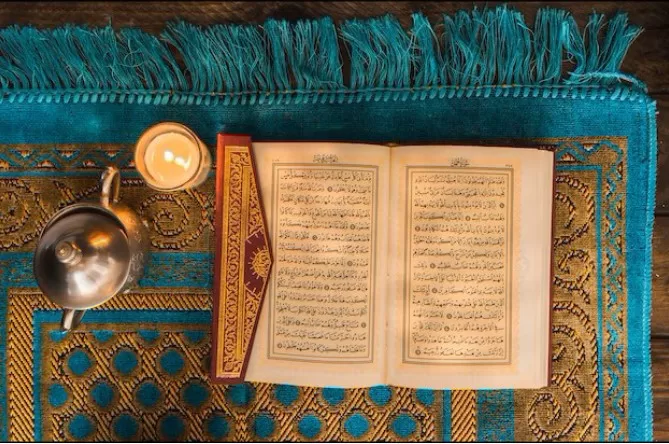
Good and Evil
Faith in measuring out allows no exceptions. The hadith of Gabriel says, “measuring out, the good of it and the evil of it.” That which is measured out, whether good or evil, is measured out by God. Modern sensibilities often find this point particularly offensive. How can a supposedly good God parcel out evil? This reaction is understandable, but a bit pre mature. Before such a judgment is made, one has to attempt to see this teaching in its Koranic context, and this means that we must grasp the nature of the good and the evil that are at issue here. The Arabic word for good is khayr, while the word for evil is sharr. Good and evil in English are exceedingly broad terms, but typically they involve a moral judgment. In contrast, the Koranic context of khayr and sharr does not usually imply a statement about right and wrong, but rather about the benefit or loss that something brings.
The human being never wearies of praying for good, but when evil touches him, he is desperate and loses hope. (41:49)
If God should hasten unto people evil as they would hasten good, their term would already be decided for them. (10:11)
The good and evil that are measured out have to do with the things that people wish to have or to avoid. The issue here is not a moral good and evil, but rather a good and evil relative to the view of the person who is receiving it. Thus, in the hadith of Gabriel, when the Prophet referred to both the good and the evil of the measuring out, he had in view human judgment about the situation. We suffer a loss, so that is evil for us. We receive a benefit, so that is good.
Typically, your loss is someone else’s gain. What is evil for you is good for someone else, and vice versa. In the same way, what appears as evil today may turn out to have been good in the long run. All of us experience situations that are difficult and trying at the time, but when we look back, we realize that they were good for us. Even death, which appears evil for the individual—though it is not difficult to see that it is necessary for the good of the world as a whole— may in fact be good for people.
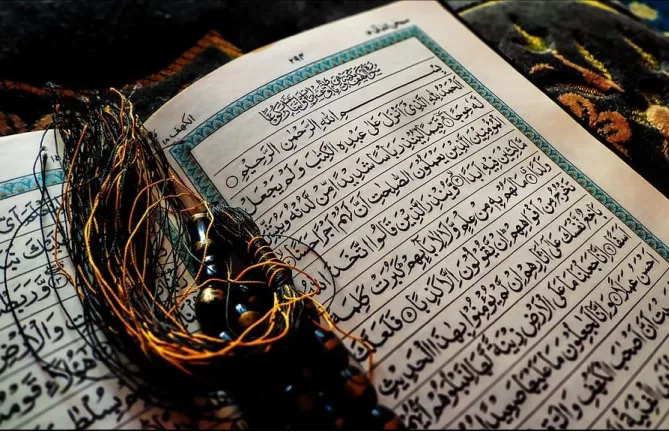
The Koran often points out that people may be mistaken in their judgments about good and evil. You might think it is good for you to win the lottery, when in fact it may be an evil. When people judge good and evil by their own standards, they are frequently mistaken:
“As for those who are stingy with the bounty God has given them, let them not suppose it is good for them; no, it is evil for them” (3:180).
People think that what they desire is good and what they dislike is evil. For most people, this means that the benefits of this world are good. But the Koran insists that these things are not necessarily good for people, especially if such things cause them to forget their human responsibilities: “Made attractive to people is the love of the things they crave for–women, children, heaped-up heaps of gold and silver, horses of mark, cattle, and tillage” (3:14). The list has not changed much since the time of the Prophet. To update it, we could make the first item nonsexist by saying “lovers” and replace the last three with “cars, electronic gadgets, and property.”
These are all good in people’s eyes, and if God did not have the attributes of a wise parent, he would give the foolish children of this world what they want. That at least seems to be what the Koran means in the following passage, which is discussing God’s mercy, a term that in many ways is synonymous with good; thus, to divide up mercy among people is to measure out good:
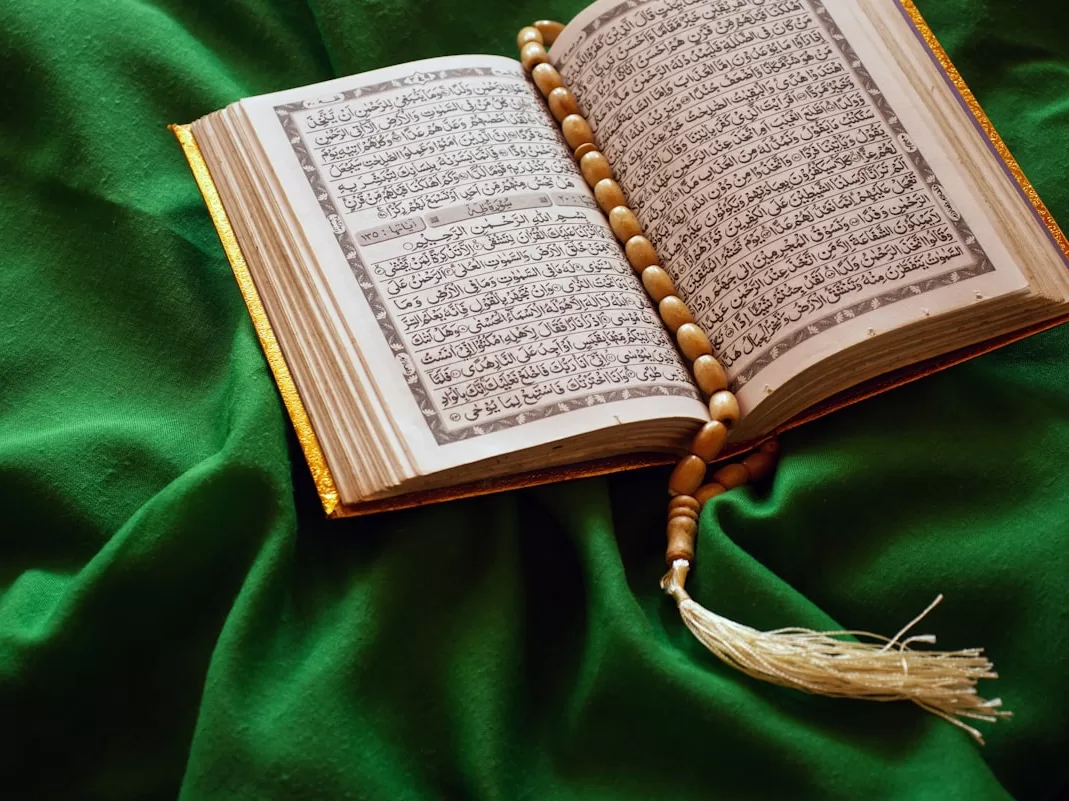
What, is it they who divide up the mercy of your Lord? We have divided among them their livelihood in the life of this world, and raised some of them above others in rank, so some take others in forced labor. But the mercy of your Lord is better than what they collect.
Were it not that people would be a single community [through ingratitude and truth-concealing], We would have appointed for those who have kufr toward the Merciful roofs of silver to their houses, and stairs whereon to mount, and doors to their houses, and couches whereon to recline, and ornaments. Surely all this is but the enjoyment of the life of this world. And surely the next world with your Lord belongs to the god-wary. (43:32-33)
It is important to keep in mind that the Koran employs several different terms that are frequently translated as “good” and “evil,” in particular the pair husn and su’, which have a strong moral connotation. Partly to differentiate these two terms from khayr and sharr, we will translate them as “beautiful” and “ugly.” Koranic usage of “beautiful” and “ugly” reflects a judgment on the rightness and wrongness of human activity, rather than a consideration of the benefit and loss that a person may perceive.
The meanings of the terms good and evil sometimes overlap with beautiful and ugly, since in the long run, benefit and loss depend upon right and wrong activity. One way to understand the nature of the good and evil that is measured out is to place the discussion back into the context of the Shahadah. We suggested earlier that the Real coincides with everything that is good, and we had in mind the Arabic term khayr. This means that the unreal corresponds with sharr, evil. We could also say that good is light, and evil is darkness.
Just as darkness is nothing but the absence of light, so also evil is nothing but the absence of good. “There is no god but God” means that “There is no good but God.” We cannot place the word evil in the Shahadah, however, because evil is nothing.
The Prophet expressed the relationship of good and evil to God with his short prayer of praise, “The good, all of it, is in Thy hands, but evil does not go back to Thee.” To what then does evil go back? To the lack of good, the lack of light, the lack of reality, the lack of the divine qualities. In other words, evil pertains to everything other than God, while good pertains to God alone. “There is no good but God.” Jesus says the same thing in the Gospel: “Why do you call me good? No one is good but God alone” (Mark 10:18).
Evil is inherent to the universe in respect of tanzih, but good is inherent to the universe in respect of tashbih. Inasmuch as God is totally other than the cosmos, the cosmos has nothing of good, because God alone is good. But inasmuch as God displays his signs and activity in the cosmos, the cosmos is good through God’s good.
Notice that on this level of discussion, good and evil have nothing to do with moral considerations, and this, as remarked above, is also true of the basic sense of the terms khayr and sharr. To say that something is good is to say that it shares in the divine attributes to some degree. To say that something is evil is to say that it lacks the divine attributes to some degree.
All things are both good and evil in this sense. God alone is good, so everything other than God is evil. But things are not absolutely other than God, as tashbih teaches us. Hence, to the extent that they are not other, they are good. All things are mixtures of good and evil, light and darkness, high and low, knowledge and ignorance, power and weakness.
When some Muslim thinkers say that the whole universe is imagination, they have in mind the ambiguity of things caused by the fact that the Real is neither fully absent from creation nor fully present within it. Each thing in the universe, ourselves included, is like an image in a mirror. The object that throws the image is the divine Reality, the source of every positive quality, the one who displays the signs. The mirror is nonexistent, which simply is not there, except as a concept that helps us to think. The mirror image is identical to the Real inasmuch as it reflects the Real’s attributes, but it is other than the Real inasmuch as it is supported by nonexistent.
The situation of the Real and its image is caught nicely by our own experience of looking at ourselves in the mirror. How real is your image? Do you care if the mirror breaks and the image disappears? Do you feel sorry for the image? This is the perspective of tanzih, illustrating how utterly real God is, and how utterly unreal we are. But this is not the whole story, because there is a major difference that is brought out in the perspective of tashbih. God cares about his images and will not allow the mirror to break. He is after all, as the Koran reports, “The Most Merciful of all those who have mercy.”
It is worth stressing here the close connection between the Koranic concepts of good and mercy (rahma). The word khayr, like the word good in English, functions both as a noun and an adjective. But it also has a comparative sense. When the Koran says, “The mercy of your Lord is better (khayr) than what they collect” (43:32), it is affirming the identity of God’s mercy with good. But it is also reminding us that there is no good but God’s good. The things that people gather during their lives in the attempt to achieve happiness—things like friends and possessions—can be no more than transitory and illusory goods.
Notice the following verse, which paraphrases a verse we have already cited about good:
“If We let the human being taste mercy from us, and then We take it away from him, he is desperate, ungrateful” (11:9).
People are allowed to “taste” mercy, not to have it and keep it. In other words, mercy is parceled out to them. It does not belong to them, it belongs to God, and God gives of his mercy to whomsoever he desires.
To be continued ……
Book Reference: Vision of Islam[4] https://docs.google.com/document/d/e/2PACX-1vTYoBtnqiynqMNoXrvRVqCIoFwUqRXm77ex9oJZ5k2SxUE-ggONRbd0QbnKMJP60GonTL5YOTefOfGZ/pub
[1] “The Vision of Islam” authored by Dr. Sachiko Murata and Dr. William C. Chittick delves into the multifaceted aspects of Islam.
[2] https://defencejournal.com/2024/10/10/the-visionof-islam-9/
[3] https://defencejournal.com/2024/11/10/the-visionof-islam-10/
[4] Vision of Islam:اردو ترجمہ مکمل کتاب http://www.williamcchittick.com/wp-content/uploads/2019/06/Chittick-and-Murata-Vision-of-Islam-Urdu-Translation-by-Muhammad-Suheyl-Umar.pdf


